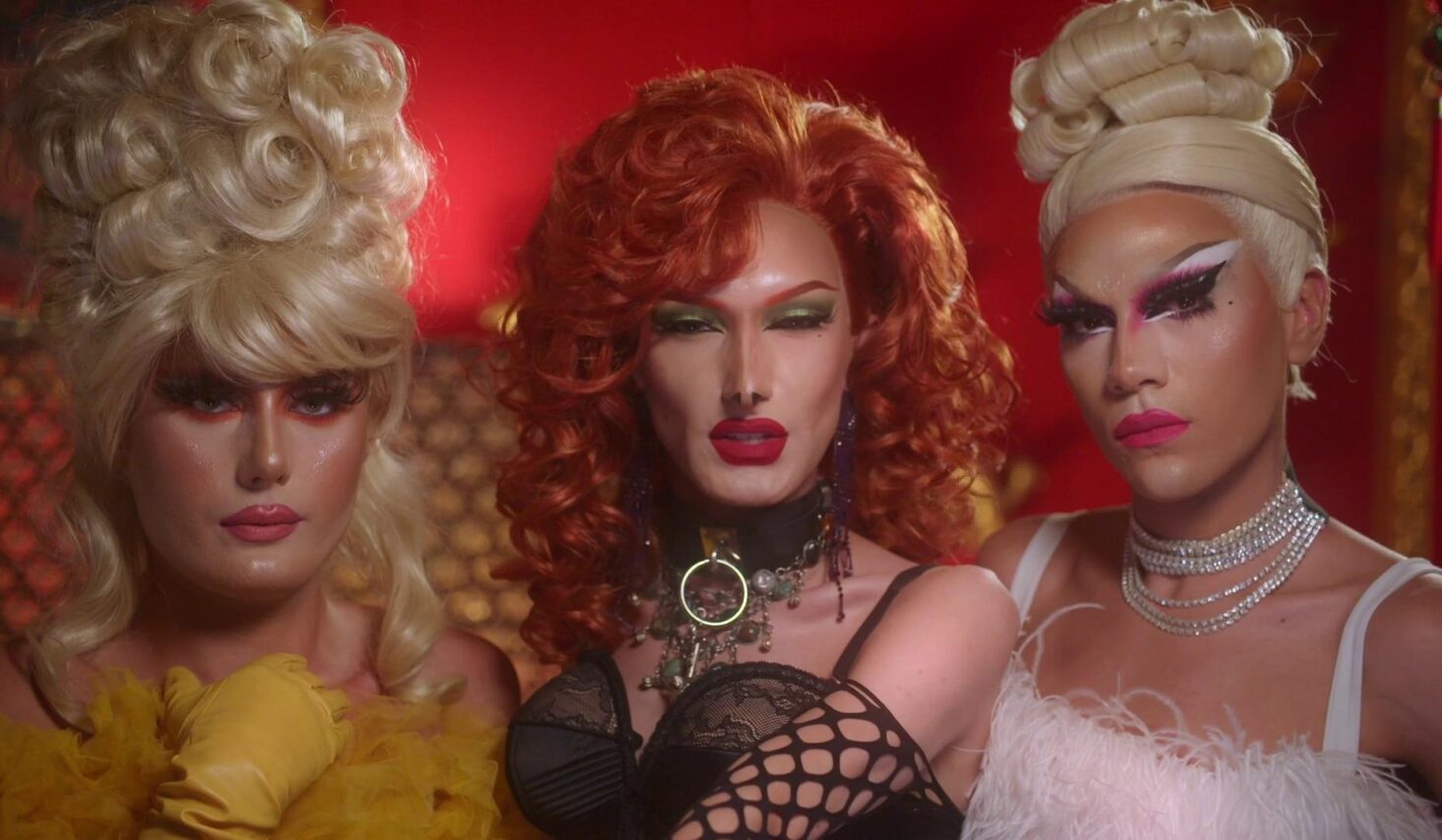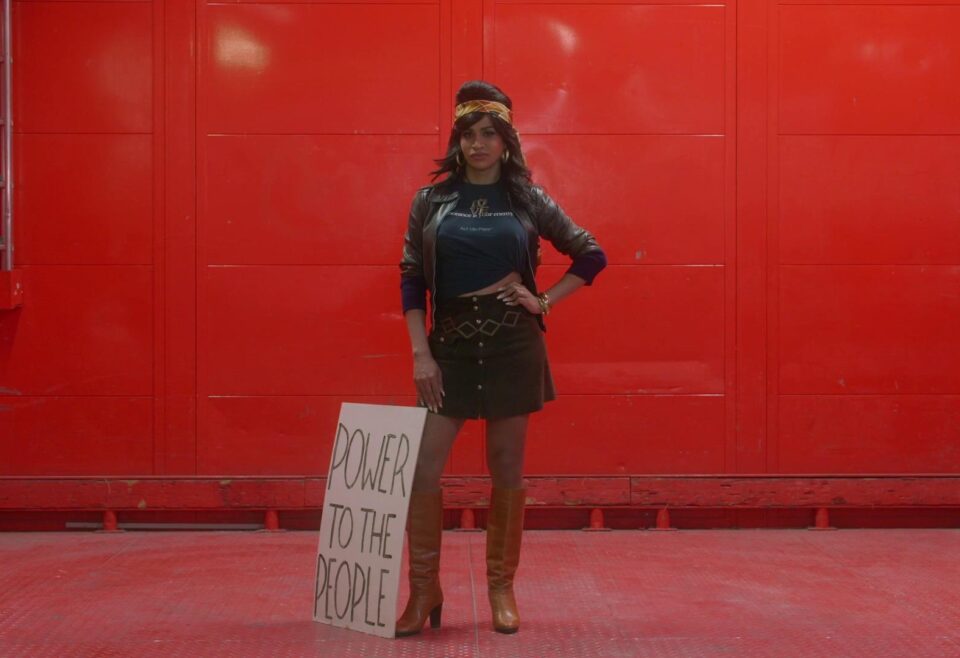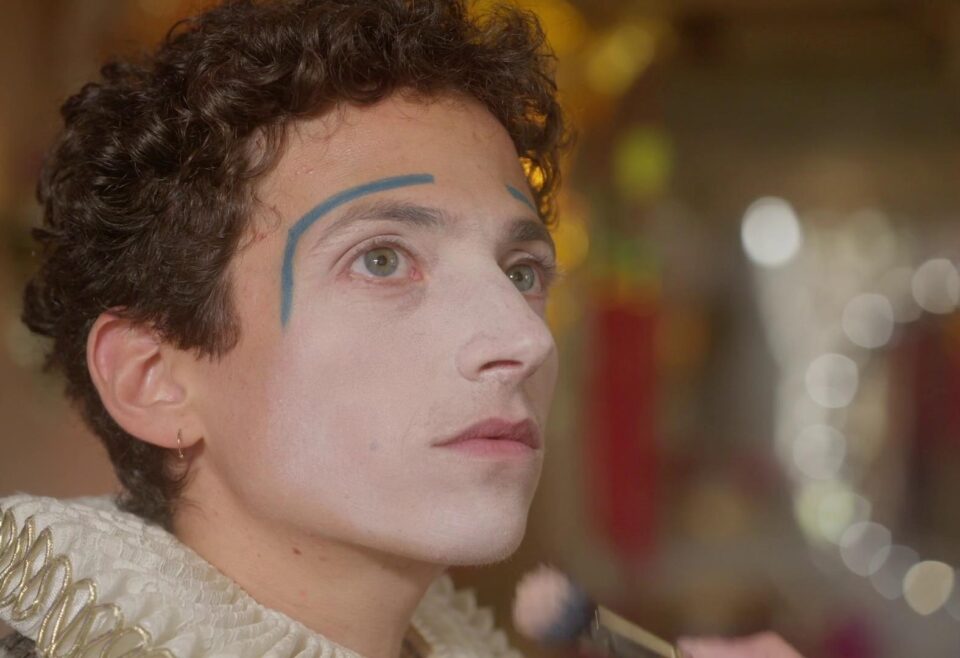
They say in Dalston you’re never more than ten feet from a copy of Testo Junkie. Paul Preciado’s semi-autobiographical gender theory has informed and guided a generation of trans people’s relationship with medicine and their own history since its publication in 2008 and translation into English in 2013.
Having since been translated into six languages, copies of Testo Junkie now exist around the world, well-thumbed and tattered in the bottoms of transmasculine backpacks. But what’s well-read at the bottom of Preciado’s backpack is not his own but Virginia Woolf’s first successful work, Orlando. A novel that tells the story of a fifteenth century aristocrat who one day, during a trip to Turkey wakes up having changed sex, Preciado declares early in his adaptation that he never wrote a biography because he felt like Woolf had “already written it.”
The film takes the form of a letter, read by Preciado, to Virginia Woolf, catching her up on the reality of gender change in the 21st century, but also astutely points out that Orlando was published in 1928, nine years after the establishment of Magnus Hirschfield’s Institute for Sexual Science which famously treated Lili Elbe in 1930. The rest of the cast is composed of young and old trans people, all but one of whom play Orlando, of all descriptions performing texts from Orlando, blended with experiences from their own life, imagining an aristocrat in a psychiatric assessment and drag queens nursing Orlando back to health. Supplementary characters include a doctor and a psychiatrist who look suspiciously like Deleuze and Foucault, and a benevolent judge played by French author, film maker and one time Drag Race France guest judge, Virginie Despentes.
This is your directorial debut, right? What made you turn to film for this project, specifically?
I never thought I would make a film. Then the German/French TV platform ARTE came to me and they said that they wanted to do a documentary biopic about my life. I thought, ‘Oh my god, this is such a horrifying idea.’ I said, ‘Please don’t do it.’ But they really wanted to make the film. I thought, if I don’t stop them, they will do it… I went to a meeting with them and I think I was possessed by the phantom of Virginia Woolf or something. I said, ‘Stop this conversation. If you really want to make a biopic on my life it’s going to have to be an adaptation of Orlando by Virginia Woolf.’ I thought that would be the end of the conversation. Then they were like, ‘Oh, what a fantastic idea, who’s gonna make this film?’ And someone said, ‘Oh, maybe Paul?’ And then I, in a kind of crazy way, said yes. Then I thought, how am I going to do this? Because I’d never made a film before.
What were your influences and inspirations when you looked to make the film?
I realised that I hated film as a medium because of the way mainstream film had represented us. It was always within this tradition of horror films and trans women being the killer, otherwise it’s trans men being killed at the end. So I had to go through a reconciliation with the medium. I had two conflicting traditions that came to me. One was intellectual film essays from French culture in the 60s, like Chris Marker, Godard, even Chantal Ackerman – how they answer questions about the relationship between fiction and reality. But I realised that the tradition that was most influential for me was really underground queer punk films, films by Jack Smith, or Ashley Hans Scheirl and Barbara Hammer – the underground films of the 80s and 90s. The film becomes an experimental laboratory, a parallel political reality. I love that dimension, and that really comes from activism and punk underground scenes more than from mainstream cinema.
The cast of the film are incredible – I wanted to know how they all came to be in the movie?
So the TV platform [ARTE] thought that I would be Orlando, and that I would be telling the story of my life through my own body. I immediately knew that that was not the point at all. So I called a casting, and my producers were like, ‘Who’s going to come to a casting of Orlando?’ Then 100 people show up, of all ages. Out of the 100 people, maybe 40 people couldn’t really play in front of a camera, which is also something which is special, not everyone is ready to actually be able to perform in front of a camera.


What was it like working together?
It was very beautiful to start speaking the language of Virginia Woolf to each other. After our third or fourth meeting, no one was anymore speaking about issues to do with the medical system or whatever, they were always speaking about Orlando. And we were into a desert, or travelling to Turkey, following Virginia Woolf in many different ways. The kind of cross conversations that the film enabled – people like Jenny Bel Air, who is one of the historical trans activists and a fantastic woman, speaking to the mother of a trans child who is, five or six years old. They’re speaking together about what it means to be trans. Then the kid, sitting in between, is saying, ‘Yes, you see mom, Jenny is right!’ And then suddenly explaining to their mom what it means to be trans. There were so many beautiful moments and the people that participated in the film were so generous and courageous. I love them so much. Even now, we‘re still a kind of Orlando community, and we see each other very often.
Psychiatry and bureaucracy are presented as the main obstacles that stand in front of our modern-day Orlandos. What advice would you give to a young trans person beginning to embark on those obstacles?
My first and biggest advice is that you need to connect to other people. The main thing is getting to understand that what is happening to you is not a sickness. It’s not an individual problem, but a collective resistance, and you need to get in connection with other people to be able to do that, because otherwise you will have to understand what is happening to you as an individual problem that only the medical system can fix. I myself, I have gone through different operations, I’ve had hormones, this is not a question about that. I think that we have the right to access hormones and operations but [we have to] be able to make those decisions by ourselves, and not be forced to make those decisions from a binary perspective, right? And for that, the best, and only thing that we can do is get organised, collectively. Get to understand that this is the fight of many centuries, and this is a historically crucial moment. We are in a moment of epistemic shift, things could actually really change. We are going through a revolution. So you need to learn your history. Instead of waking up and saying, ‘Oh my god, what a disaster, I’m non-binary,’ or ‘I’m trans,’ be like, ‘This is the revolution, the revolution is happening to me.’ So let’s do this together, right?
Orlando is considered in the film as “having come before” and there’s a sense of trans people as their own heritage or lineage. How important is history to you and in the film?
Virginia Woolf set the starting point of the novel in the 15th century. And that forced me to go back into history and think about what has been happening to non-binary, intersex, and trans people for centuries. One of the main issues today is that we do not know our own history, we’ve been deprived of it. We’ve been fighting for ages, and we need to have access to that history to understand what is happening today. That’s one of the things that I’m always trying to do, and not just trans history. We don’t even know the history of sexuality or the history of sex. Most people think binary sex is natural. It’s not natural, [it’s an] invented regime, and we are at the edge of transforming this regime into something else. Maybe in the next 50 years, we will move into a non-binary regime. One that will not be male and female, but will be like many other genders. And that’s such a beautiful and utopian horizon, right?
Do you think every trans person should read Orlando?
Oh, yes, I think so. But there’s so many things that we could read. Every trans person should also read, like Das Kapital by Marx. They should also read Audre Lorde, and poetry. We should read many, many, things, because part of our survival relies on fiction. We need fiction because the reality that we are confronted with is so violent to us. We need fiction to be able to imagine political change, gender change, every possible change. So, yes, read Orlando.
Orlando: My Political Biography is now streaming on MUBI as part of their ‘Trans Awareness Week: Four Essentials of Trans Cinema’ collection, alongside Monica, Paris is Burning and All About My Mother.
Get 30 days of MUBI free with Gay Times here.